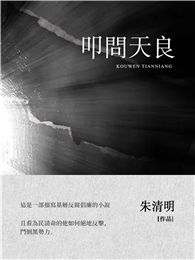Throughout his career Arthur Darby Nock (1902-1963) made unique and lasting contributions to classical scholarship and the history of religion, especially to the study of ancient religion, magic, and the relation of paganism to early Christianity and Judaism. Nock’s genius showed itself early: endowed with a prodigious memory and an unerring linguistic skill, he combined speed and accuracy in reading and a delight in the discovery, ordering and establishment of facts. At the age of twenty he was made annual reviewer of Latin literature for The Year’s Work in Classical Studies; and at twenty-four he produced an important edition of a fourth-century Greek text, Sallustius On the Gods and the Universe, which included a translation and a masterly introduction.
At twenty-seven, having come to the United States from England the year before, Nock was appointed Frothingham Professor of the History of Religion at Harvard University. In his early thirties he wrote two books, Conversion--an imaginative and exacting study of religious currents in the Hellenistic and Roman world--and St. Paul. Mainly, however, A. D. Nock poured his immense learning into articles and reviews, which heretofore have been scattered through many different journals. Representing a formidable range of learning, these essays deal for the most part with historical evidence (from all sources, including papyri, inscriptions, and coins) of the beliefs, superstitions, and religious practices of ordinary people. Nock saw the essence of religion not only in philosophy ortheology, but in piety and cult, in the practices and the expressions of the common man. His unusual combination of genius and common sense allowed him to treat the actual manifestations of religious sentiment without condescension. For this edition of Arthur Darby Nock’s writings, Zeph Stewart has garnered a substantial selection of Nock’s most important essays and has indexed and cross-referenced them as well.| FindBook |
有 1 項符合
Essays on Religion and the Ancient World的圖書 |
 |
Essays on Religion and the Ancient World 作者:Nock 出版社:Harvard University Press 出版日期:1972-01-01 語言:英文 規格:精裝 / 534頁 / 24.13 x 16.51 x 3.81 cm / 普通級/ 初版 |
| 圖書館借閱 |
| 國家圖書館 | 全國圖書書目資訊網 | 國立公共資訊圖書館 | 電子書服務平台 | MetaCat 跨館整合查詢 |
| 臺北市立圖書館 | 新北市立圖書館 | 基隆市公共圖書館 | 桃園市立圖書館 | 新竹縣公共圖書館 |
| 苗栗縣立圖書館 | 臺中市立圖書館 | 彰化縣公共圖書館 | 南投縣文化局 | 雲林縣公共圖書館 |
| 嘉義縣圖書館 | 臺南市立圖書館 | 高雄市立圖書館 | 屏東縣公共圖書館 | 宜蘭縣公共圖書館 |
| 花蓮縣文化局 | 臺東縣文化處 |
|
|
圖書介紹 - 資料來源:博客來 評分:
圖書名稱:Essays on Religion and the Ancient World
|










